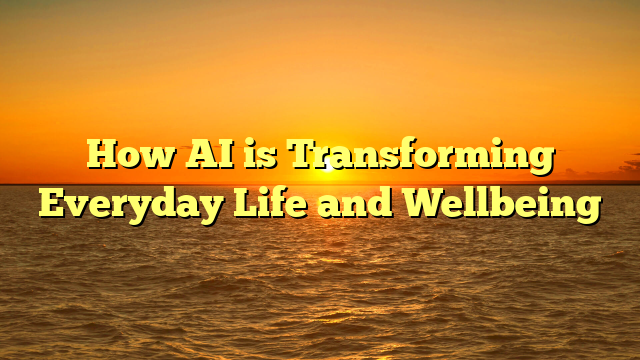As the modern age accelerates, digital advancement is reshaping how we live, work, and think. The intersection of finance, tech, intelligence, and health is revolutionizing industries across the globe.
Finance and Technology: A Digital Revolution
The financial sector is experiencing a digital revolution. Thanks to fintech, everyone from entrepreneurs to consumers now have access to tools that automate financial decision-making.
Consider the rise of apps like Robinhood, Acorns, or Revolut have given people control to invest in cryptocurrencies from their smartphones. This widespread access of financial tools has redefined wealth management and made it easier to participate in global markets.
Furthermore, with the advent of blockchain, the financial world is seeing a transformation. Cryptocurrencies like Ethereum are becoming mainstream, and central banks are exploring central bank digital currencies to adapt to the digital age.
Artificial Intelligence and Financial Intelligence
Artificial intelligence goes beyond automation; it’s about data-driven insights and future predictions. In the world of finance, AI can manage risks at speeds and accuracies that humans simply cannot match.
AI-driven investment platforms now offer personalized investment advice to users based on risk tolerance, goals, and timelines. AI can even help in loan underwriting, offering greater inclusion and efficiency.
Smart Health: Technology Meets Wellness
In healthcare, technology is saving lives. Wearables like Apple Watch can help manage chronic conditions. These devices use AI to predict potential health issues before they become emergencies.
Telemedicine has also gained popularity, especially in the last few years. Now, people can get prescriptions from the comfort of their homes, which improves access and minimizes travel.
Further, AI in diagnostics—such as reading X-rays or MRIs—is often more accurate than human doctors. Tools like IBM’s Watson Health or Google’s DeepMind are redefining diagnostics and helping physicians make informed decisions.
Intelligence: Human and Machine in Harmony
Intelligence is evolving, thanks to our advancements in neurotechnology. We now have AI systems that can beat chess champions. But the goal isn’t to replace humans—it’s to support our natural intelligence.
Across industries, AI is being used to create adaptive learning environments. Apps like Grammarly, Notion AI, or ChatGPT are helping people boost productivity and critical thinking at their own pace.
Cognitive enhancement tools are also on the rise. Companies like Kernel are exploring ways to merge human brains with machines. The implications are profound—not just for productivity, but also for mental health and wellbeing.
Where It All Intersects: Integrated Innovation
What’s most exciting is how these domains interact. A person managing diabetes might use a smart patch connected to their health account, receiving financial advice based on real-time health data. Similarly, someone improving their mental health might use a brain-training game that adapts to their progress and even integrates with their financial goals.
This kind of integration is leading to a future where our mind, body, and bank account are interconnected through technology.
Challenges and Ethical Concerns
Of course, with such accelerated progress, come concerns. Bias, inequality, and ethical dilemmas are all issues that must be carefully managed. Financial systems run by AI could discriminate unintentionally, and medical diagnostics powered by algorithms must be transparent and accountable.
We must also consider digital inequality. Not everyone has equal access to these innovations, which could widen the gap between the rich and poor if not handled responsibly.
Conclusion: Shaping a Smart, Healthy, and Wealthy Tomorrow
In conclusion, the convergence of these four pillars of modern life is reshaping the human experience. From smart health monitoring to financial automation, we’re entering an age where technology works alongside our humanity.
naik139 isn’t whether these fields will intersect—it’s how we’ll use them responsibly. Tomorrow is now, and it’s intelligent, digital, and holistic.
